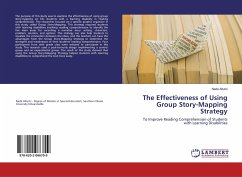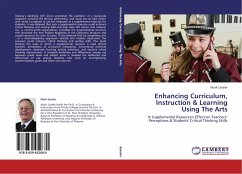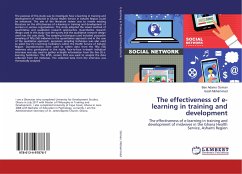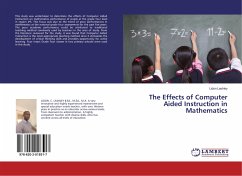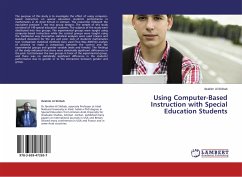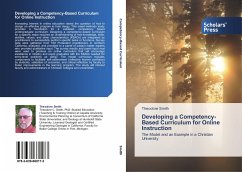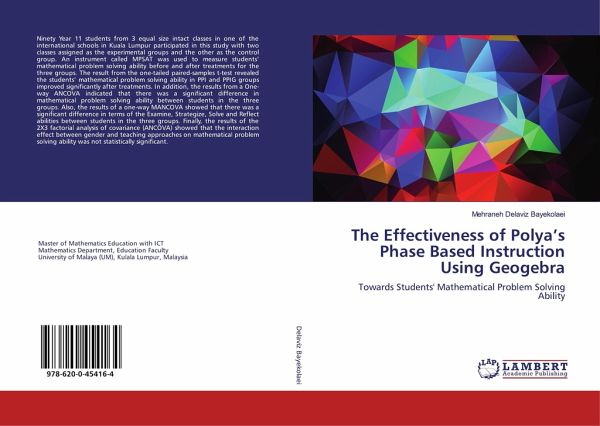
The Effectiveness of Polya's Phase Based Instruction Using Geogebra
Towards Students' Mathematical Problem Solving Ability
Versandkostenfrei!
Versandfertig in 1-2 Wochen
51,99 €
inkl. MwSt.

PAYBACK Punkte
26 °P sammeln!
Ninety Year 11 students from 3 equal size intact classes in one of the international schools in Kuala Lumpur participated in this study with two classes assigned as the experimental groups and the other as the control group. An instrument called MPSAT was used to measure students' mathematical problem solving ability before and after treatments for the three groups. The result from the one-tailed paired-samples t-test revealed the students' mathematical problem solving ability in PPI and PPIG groups improved significantly after treatments. In addition, the results from a One-way ANCOVA indicat...
Ninety Year 11 students from 3 equal size intact classes in one of the international schools in Kuala Lumpur participated in this study with two classes assigned as the experimental groups and the other as the control group. An instrument called MPSAT was used to measure students' mathematical problem solving ability before and after treatments for the three groups. The result from the one-tailed paired-samples t-test revealed the students' mathematical problem solving ability in PPI and PPIG groups improved significantly after treatments. In addition, the results from a One-way ANCOVA indicated that there was a significant difference in mathematical problem solving ability between students in the three groups. Also, the results of a one-way MANCOVA showed that there was a significant difference in terms of the Examine, Strategize, Solve and Reflect abilities between students in the three groups. Finally, the results of the 2X3 factorial analysis of covariance (ANCOVA) showed that the interaction effect between gender and teaching approaches on mathematical problem solving ability was not statistically significant.



